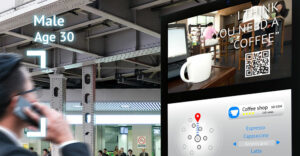Eighty percent of participants in a recent Capgemini consumer survey said they would pay more for a better customer experience, and 9 percent were willing to pay up to 50 percent more.
Researchers polled 3,300 customers of 125 companies in the utilities, consumer products, retail, retail banking, and Internet-based services sectors.
Among the respondents were 450 senior executives from customer experience, customer service, IT, marketing, and sales departments at 150 companies.
The survey included participants from Australia, China, France, Germany, India, the Netherlands, the UK and the United States.
Capgemini used the industry-standard Net Promoter Score, or NPS — an index ranging from minus-100 to plus-100 — to measure the willingness of customers to recommend a company’s products or services.
Capgemini’s Digital Transformation Institute created a DCX index based on the evaluations of organizations across 80 different digital experience attributes, ranging from the ability to view and edit personal data to personalizing products and services on mobile devices.
While 75 percent of business representatives believed their companies were customer-centric, only 30 percent of consumers viewed companies that way, the study found.
Utilities and consumer products companies were the most out of sync with their customers, while Internet service companies and their customers were most in step, setting the bar for other organizations, Capgemini found.
The Digital Imperative
For consumers, digital operations are key to meeting expectations, Capgemini said. Consumers are willing to spend 0.6 percent more for each single point increase in a company’s DCX index score, and its NPS also increases by nearly five points.
Over the past three years, closely tying business operations with customer experience gave a company a 14-point NPS advantage and doubled the NPS point increase compared to those that did not.
About 30 percent of businesses said they faced a challenge keeping up with the rapidly evolving technology landscape and consumers’ digital expectations.
The most important takeaway from the survey is that “there’s such a big disconnect between what the companies believe their loyalty score should be and what it is,” said Rob Enderle, principal analyst at the Enderle Group.
Digital Transformation Issues
There are a number of IT challenges for companies attempting to go digital:
- The rapidly evolving technology landscape, according to 58 percent of respondents;
- Rising consumer expectations, according to 57 percent;
- Difficulty integrating disparate platforms, according to 38 percent; and
- Poor user interfaces, according to 32 percent.
Forty-one percent of business respondents said their firms had no dedicated customer experience budget, and 35 percent cited a lack of internal ownership of the digital customer experience.
Companies thinking of implementing a digital customer experience should be looking very closely at artificial intelligence, said Doug Heise, VP of global marketing at CoreMedia.
“In the next few years, it may be the thing that makes or breaks your company,” he told CRM Buyer.
Given enough time and people, it’s easy to produce a custom digital experience for any visitor or create a custom landing page that reflects emerging trends, hot styles or trending news, Heise said.
However, online trends come and go “at lightning speeds,” he noted, and the number of customers demanding relevant real-time experiences is growing. “Combine these two trends, and you’ve got a nightmare situation for marketers and e-commerce managers.”
AI not only helps resolve these issues but “it’s also about massive scalability and massively increased efficiency,” Heise pointed out.
On the other hand, “going digital without understanding why customers are ranking you down for loyalty would be a mistake,” Enderle told CRM Buyer.
The survey’s core finding is that firms that focus on loyalty and use digital technologies to close the gap did better, Enderle noted.
“This isn’t multiple choice,” he remarked. “The focus on loyalty is the more important driver. Digital isn’t a magic pill that fixes bad customer practices.”



























































I would expect clients to be willing to pay more for great customer services, but for being pleased?! That’s something new.
Artur @ Pareto CRM